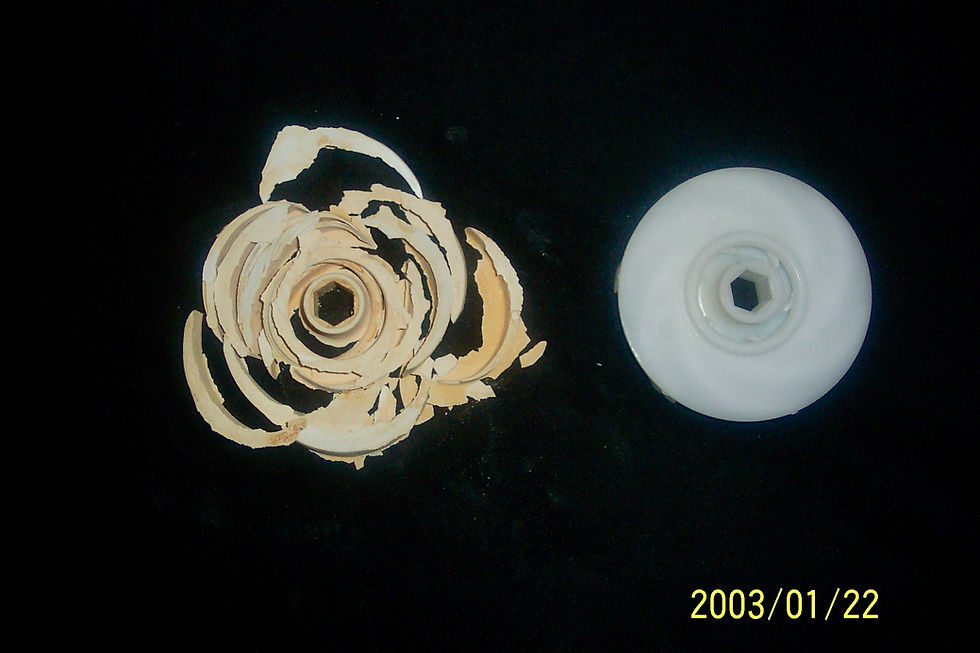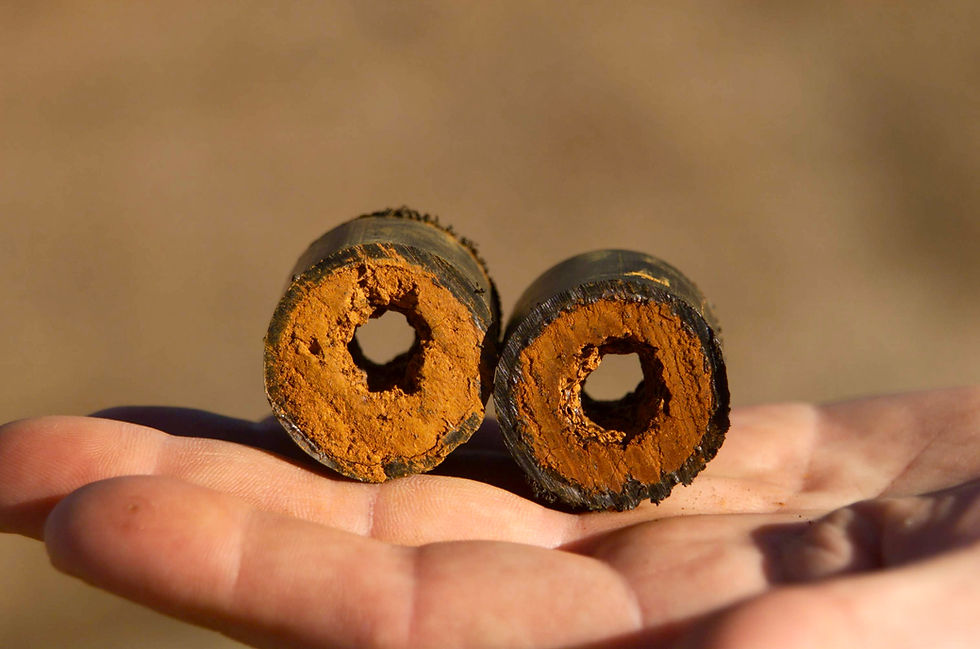Using raw hydrochloric acid (HCl) to clean a groundwater well
- David Bennett
- Aug 11
- 2 min read
Using raw hydrochloric acid (HCl) to clean a groundwater well is risky for several reasons — and our contractors photo of the destroyed poly impeller is a textbook example of the damage it can cause.
Here’s a clear breakdown of the problems:
Aggressive Material Attack
Polymer and plastic parts (impellers, pump housings, seals) can soften, crack, or completely dissolve after repeated HCl exposure.
Metals such as mild steel, galvanised steel, and even some grades of stainless steel can pit and corrode quickly.
Rubber seals, o-rings, and gaskets often lose elasticity or disintegrate.
2. No Selectivity – Removes Good with the Bad
HCl attacks not only the scale or iron oxide you want to remove but also the surrounding well screen, casing, and pump fittings.
This can enlarge screen slots, weaken joints, and shorten the life of the infrastructure.
3. Violent Reaction with Iron-Related Bacteria (IRB) and Carbonates
Raw acid reacts rapidly, generating heat, hydrogen gas, and suspended solids.
The fast reaction creates turbulence that can stir up deep sediment, which then blocks pump intakes or damages moving parts.
4. Safety Hazards
Concentrated HCl gives off highly corrosive fumes that can burn eyes, skin, and lungs.
Hydrogen gas generation poses an explosion risk in confined spaces.
Risk of severe chemical burns during handling and mixing.
5. Environmental Risks
Any uncontrolled discharge of acid or acidic flush water can kill aquatic life and contaminate soil.
Neutralisation after cleaning is critical, but many operators underestimate the volume of neutraliser needed.
6. Short-Term Gain, Long-Term Pain
HCl can give an instant improvement in water flow, but the damage to materials means pumps, impellers, and well screens often fail much sooner.
Repeated treatments compound the damage — your destroyed impeller is proof.
Better alternatives:Specialised well rehabilitation chemicals (like BoreSaver Ultra C) are designed to target iron-related bacteria and mineral fouling without attacking pump components or casing materials. They’re safer to handle, biodegradable, and don’t produce hazardous fumes.





Comments